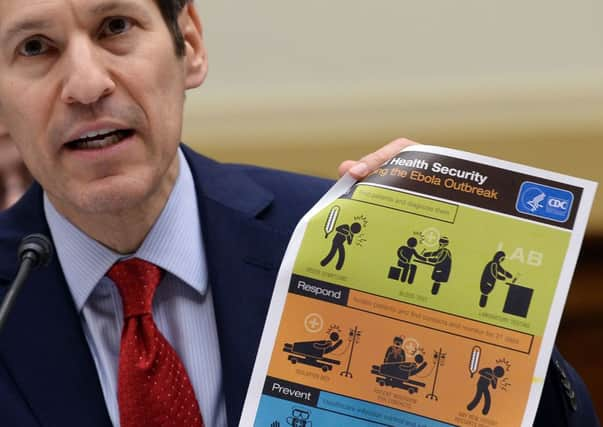Lyndsay Buckland: Public needs knowledge on Ebola


As the World Health Organisation considers whether to declare an international health emergency, authorities in the UK are increasing vigilance of the virus, particularly among health staff who will be the most likely to come up against a case if and when it arrives on our shores.
And whatever we do to try to combat Ebola, there is a high chance that it will eventually arrive in the UK as international travel makes it so easy to board a plane without symptoms only to arrive and fall ill soon afterwards.
Advertisement
Hide AdAdvertisement
Hide AdOur public health systems are such that its onward spread would most likely be contained and it would not be allowed to cause the havoc seen in nations such as Liberia, Sierra Leone and now Nigeria.
But that does not stop people fearing this disease, which leads to severe bleeding and multiple organ failure, victims dying open-eyed and open-mouthed after excruciating suffering.
Much of the fear stems from the fact that there are currently no proven treatments or vaccines to protect against Ebola.
But there is also fear of the unknown – if it will arrive in the UK, when it will arrive and how the authorities will cope with it.
Scotland experienced a sense of this last week, when it emerged that two Sierra Leone athletes visiting Glasgow for the Commonwealth Games had been tested for Ebola. These tests were negative and no cases of Ebola have ever been identified in Scotland.
We have no idea how many other people have been tested for Ebola in Scotland. Health Protection Scotland says that reporting of negative results is “meaningless” due to the vague and general nature of the symptoms which may have given rise to testing.
This may be true, but knowing the numbers may at least reassure us.
Governments and public health bodies are eager to avoid creating a panic, and sometimes the best way is to suppress the release of information. Even when the athletes themselves spoke of being tested for Ebola, no confirmation from the NHS was forthcoming.
Advertisement
Hide AdAdvertisement
Hide AdBut the public must be treated as adults and given more information about what we are doing closer to home to reduce the Ebola threat.
And we must also look to those faraway shores and give whatever support we can to those suffering now, with hope that the deadly spread can be stopped.